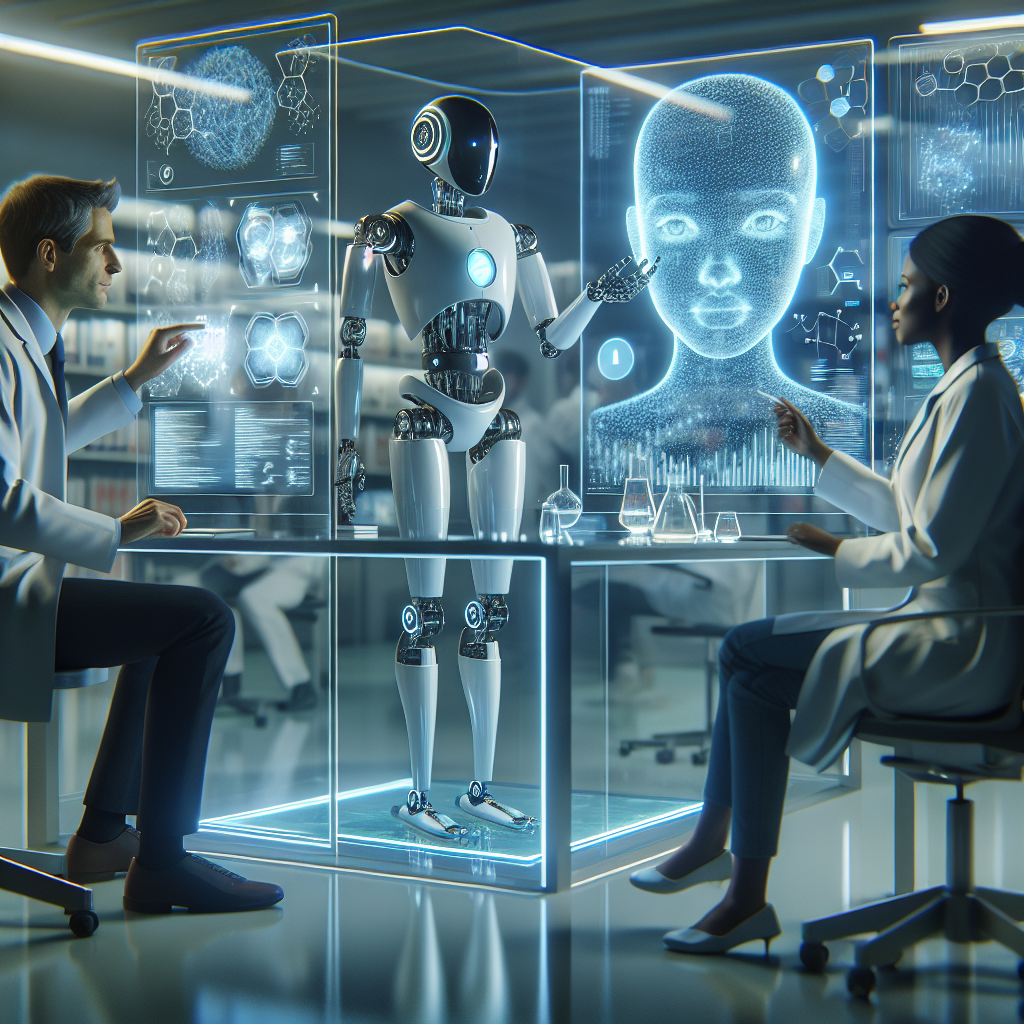Google Develops AI Co-Scientist to Aid Researchers
In a groundbreaking leap towards the future of scientific research, Google has announced the development of an AI co-scientist designed to assist researchers across various disciplines. This innovative tool is expected to streamline the research process, making it more efficient while enhancing collaboration among scientists globally. In this blog post, we delve into the implications of this advancement, how it works, and what it could mean for the future of scientific discovery.
The Rise of AI in Scientific Research
Artificial Intelligence (AI) has made significant strides in recent years, extending its applications across multiple fields, including healthcare, finance, and technology. The integration of AI into research is particularly promising, as it can analyze vast datasets more quickly than a human could, drawing insights that might otherwise go unnoticed. With Google’s new AI co-scientist, researchers can harness these capabilities to accelerate their work.
The AI co-scientist is not just a tool for data analysis; it is designed to function as a collaborative partner. By using machine learning algorithms, the AI can not only analyze existing data but also suggest hypotheses and experiments that researchers might want to explore. This capacity for collaborative inquiry represents a significant shift in how research is conducted, potentially leading to breakthroughs that were previously unattainable.
How the AI Co-Scientist Works
The AI co-scientist operates using advanced machine learning techniques that allow it to process and interpret scientific literature, experimental data, and even complex mathematical models. Here’s a breakdown of its core functionalities:
1. Data Analysis: The AI can evaluate large volumes of data to identify patterns and correlations that may elude human researchers. It can analyze multiple sources of information simultaneously, providing a comprehensive view of the subject at hand.
2. Hypothesis Generation: By synthesizing information from various studies, the AI can propose new hypotheses for researchers to test. This capability not only saves time but also fosters greater creativity within the scientific community.
3. Experiment Design: The AI offers suggestions for experimental designs that can effectively test the proposed hypotheses. It takes into account previous research and current methodologies to enhance the validity of new experiments.
4. Literature Review: Conducting thorough literature reviews can be tedious and time-consuming. The AI co-scientist automatically scans and summarizes relevant research papers, saving researchers countless hours.
5. Collaboration and Communication: The AI facilitates collaboration by enabling seamless communication between researchers. It can manage project timelines, share updates, and keep track of data across teams, breaking down silos that often exist in scientific research.
Benefits of the AI Co-Scientist
The introduction of the AI co-scientist brings numerous benefits to the scientific community. Some of the most notable advantages include:
1. Increased Efficiency: The AI co-scientist can significantly reduce the time researchers spend on repetitive tasks, such as data analysis and literature reviews. This efficiency allows scientists to focus more on creative thinking and experimentation.
2. Enhanced Creativity: By generating hypotheses and suggesting experimental designs, the AI encourages researchers to think outside the box, potentially leading to innovative solutions to complex problems.
3. Improved Collaboration: The AI’s ability to facilitate communication and project management fosters collaboration among scientists from different disciplines and geographical locations, accelerating the pace of discovery.
4. Democratization of Research: With the help of AI, researchers in developing countries or institutions with fewer resources can access advanced analytical tools, leveling the playing field in scientific research.
Potential Challenges
While the benefits of the AI co-scientist are significant, there are also challenges to consider. One major concern is data privacy and security. As researchers increasingly rely on AI to manage sensitive data, ensuring that this information remains secure is of utmost importance. Furthermore, researchers must also be vigilant about the accuracy of the AI’s outputs, as errors or biases in the algorithms could lead to misleading conclusions.
Another concern is the potential for over-reliance on AI. While these tools can assist in many aspects of research, it’s essential for scientists to maintain their critical thinking skills and not become overly dependent on AI-generated insights. The human element of scientific inquiry—intuition, creativity, and ethical considerations—remains irreplaceable.
The Future of AI in Scientific Research
The development of Google’s AI co-scientist is just the beginning of what promises to be a transformative era in scientific research. As AI technology continues to evolve, we can expect even more sophisticated tools that will further enhance collaboration and innovation.
The integration of AI could lead to faster discovery of treatments, solutions to pressing global challenges, and advancements in countless fields, from climate science to space exploration. As researchers embrace these powerful tools, the speed and efficiency of scientific discovery could accelerate exponentially.
Conclusion
Google’s AI co-scientist represents a significant milestone in the intersection of artificial intelligence and scientific research. By streamlining processes, fostering collaboration, and generating new ideas, this innovative tool has the potential to change the way researchers work. As the scientific community adapts to this new technology, we may witness unprecedented advancements that could reshape our understanding of the world.
As we look to the future, it is crucial that we embrace these technologies thoughtfully, ensuring that ethical considerations, data security, and the irreplaceable value of human insight remain at the forefront of this exciting new chapter in scientific research. With the right balance, the AI co-scientist could herald a new era of discovery that benefits humanity as a whole.



